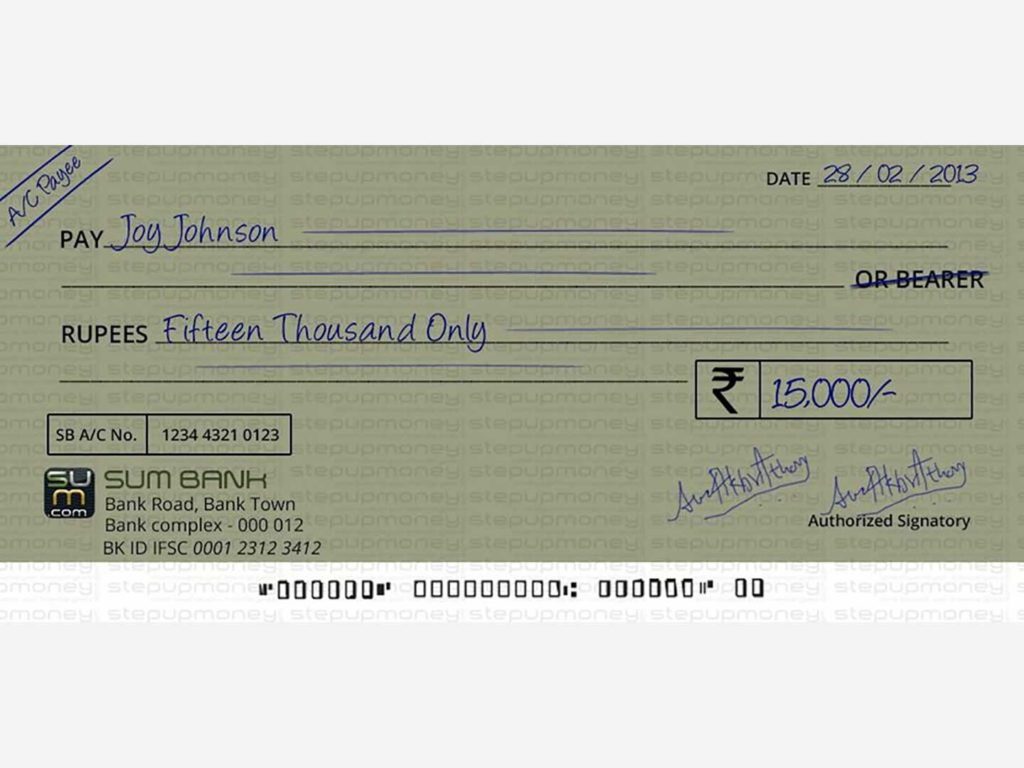Search
The Do’s and Don’ts of Using Cheques
December 15, 2017

Although we are moving towards an increasingly cashless economy, especially due to the slew of initiatives taken by the government lately, cheques are still quite common and preferred by a large number of businesses and individuals.
Just like any other banking product, cheques are to be used carefully in the correct manner, lest there should be problems with the transaction or otherwise.
The Do’s of Using Cheques
- Use a permanent ink pen for writing a cheque and make sure that the text is neat and perfectly legible.
- Make sure that there are no corrections/modifications/erasures on the face of the cheque as it may lead to its rejection.
- Destroy a cheque completely if it’s soiled or damaged.
- Ensure that no cheque is removed from your chequebook without your knowledge. If you find one missing, then report to your bank immediately.
- Make sure that there are enough funds in your bank account before you issue a cheque. Otherwise, not only you may have to pay a penalty, the person depositing the cheque will also have to pay a penalty.
- Write “canceled” across a canceled cheque so that it can’t be misused.
The Don’ts of Using Cheques
- Leave space in between the words and write the word “only” after the amount in words. Also, do not leave space before the numerical amount and start as close to the word “Rs.” or the symbol “₹”.
- Sign a blank cheque or offer one as payment.
- Fold or staple a cheque, as it may affect the clarity of the written text along the “fold” or staple. Additionally, the MICR field may also get damaged which is one of the most common reasons why cheque processing systems reject the cheques.
- Develop a habit of keeping your chequebook pre-signed.
- Write around the MICR band that’s located at the bottom of a cheque, or the CTS portion that’s located on the left side of the cheque.
Important Links:
- Post Graduate Diploma in Banking & Finance: https://new.ask.careers/courses/post-graduate-diploma-in-banking-finance/
- 4-IN-1 Professional Diploma in Banking, Financial Services & Insurance (PDBFSI): https://new.ask.careers/courses/professional-diploma-in-banking-management/
- Mumbai: https://new.ask.careers/cities/mumbai/
- Lonavala: https://new.ask.careers/cities/lonavala/
- Ahmedabad: https://new.ask.careers/cities/ahmedabad/
- Vadodara: https://new.ask.careers/cities/vadodara/
- TSCFM: https://new.ask.careers/institutes/tscfm/
Courses
-
MBA for Executives
-
testssd
-
testssd
-
testssd
-
testssd
-
testssd
-
BBA from UK University
-
Banking course + Job
-
MBA from ARU, Anglia Ruskin University (UK)
-
4-IN-1 Professional Diploma in Banking, Financial Services & Insurance (PDBFSI)
-
MBA from HSNC University (Mumbai, India)
-
Sage Foundation - Professional Diploma in Banking
-
3-in-1-management-program
-
Post Graduate Diploma in Banking & Finance
-
Post Graduate Diploma in Digital Marketing
-
Post Graduate Diploma in Integrated Marketing, Advertising & Communication
-
4-IN-1 Professional Diploma in Banking, Financial Services & Insurance (PDBFSI)
-
Professional Diploma in Digital Marketing
-
Professional Diploma in Real Estate Management
-
Professional Diploma in Photography
-
Certificate in Business English
